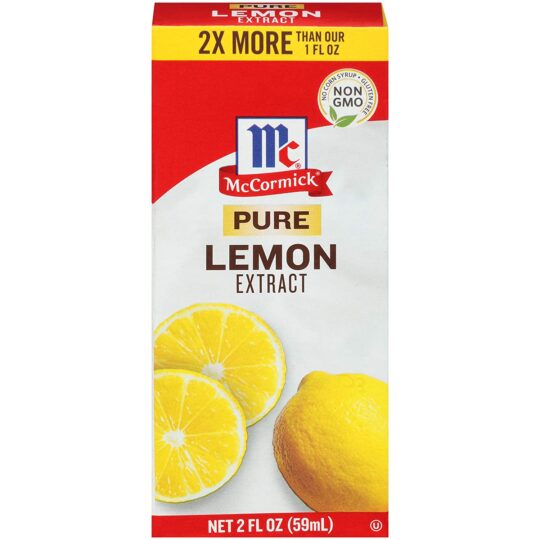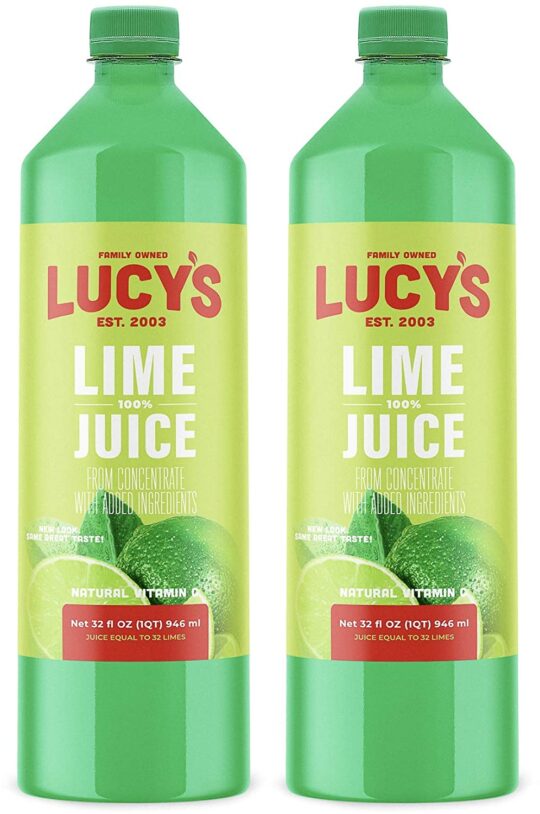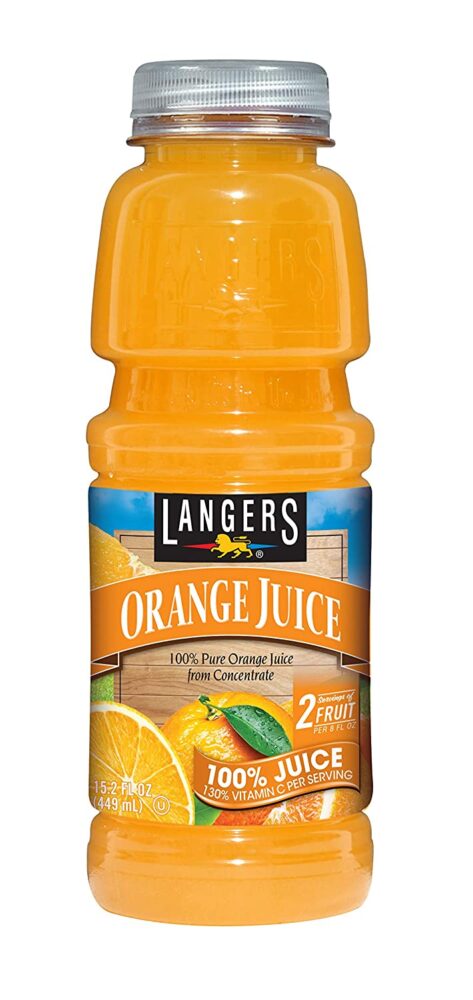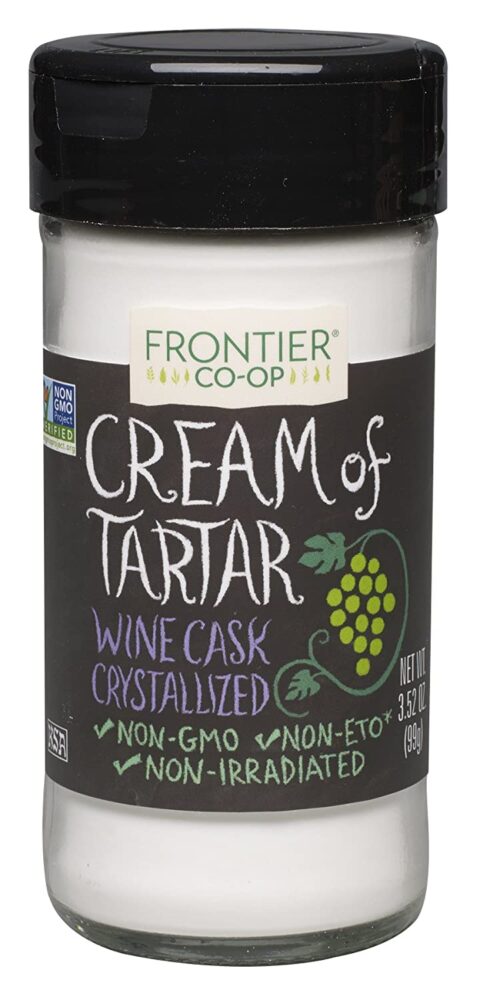Citrus juices are a common addition to dishes from numerous cuisines, but lemon juice is the most popular. It’s a regular inclusion to recipes where its signature tang is highly required, and it further adds enough acidity to meet distinct cooking needs. And since lemons are almost easy to find anywhere, the idea of considering a substitute may sound ludicrous. But you may not always have a couple of fresh lemons in your fruit basket, or out of negligence, forget to restock your bottle of lemon juice.
So, a substitute makes sense in such cases, and here, you’ll find great options that’ll do the job. These replacements can help replicate the same sourness expected from lemon juice or the numerous benefits your dish will accrue from its acidity. And they’ll work on almost everything, from cheesecakes to marinades, dressings, and more. But why do cuisines add lemon juice to their recipes? And what do you benefit from using this sour liquid ingredient in your cooking?
What makes lemon juice special?
Many recipes employ the effects of citrus fruits in their flavor profiles, but lemon juice happens to be the most highly sought. One reason is that lemons offer the most balanced acidity of all the citrus. It’s also one of the most acidic ingredients for cooking, and this factor is employed for a wide variety of uses. Plus, it offers a stable flavor profile that perfectly juggles sweet, sour, savory, and bitter.
Lemons are also easy to find and can be bought in almost any store. They provide more liquid than limes and more sourness than oranges. Also, the juice can be stored for longer as its acidity keeps it from going rancid. And they’re so versatile; you can add them to meats, veggies, fish, seafood, and beverages.
Uses of lemon juice in recipes
Lemon juice adds a solid zing for any sweet or savory recipe it’s included. Its sourness isn’t overwhelming, meaning you get the correct dose of tang and sweetness and a hint of citrusy rugged. It’s why lemon juice is included in tons of beverages, alcoholic or non-alcoholic.
The juice is also a regularly included ingredient for dressings and dips. You’ll also find it in cooked recipes, where it’s spritzed towards the end of the cooking time. It’s also commonly used to tenderize meat, as the acidity helps break the tissue proteins as it sits in the liquid. And it boosts the umami flavor of any dish it’s added, giving the best and tastiest results once done.
Lemon juice also offers antimicrobial properties, helping you boost the immune system. It’s also rich in antioxidants, vitamin C, and free radicals to help improve skin health and fight to age. You can also use lemon juice to tackle flu symptoms, cough, scurvy, sore throat, and lighten sunspots on the skin.
You’ll find lemon juice in many recipes due to its attractive properties. Some of these examples include;
- Ginger lemon
- Marinades
- Cookies
- Sauces
- Soups
- Popsicles
- Turkish delight
- Ice cream
- Charred leeks
- Cupcakes
- Curries
- Cocktails
- Crème Brule
- Pasta dishes
- Gingerbread house
- Apple pie bars
- Roasted vegetables
- Seafood dishes
- Pancakes
- Friend potatoes
- Lemonade
- Lemon rice
- Punjabi lemon chicken
- Falafel
- Puddings
- Strudels
- Traybakes
- Smoked salmon
- Simple syrup
- Ham
- Galette
- Roasted Brussels sprouts
- Cakes
- Grilled apples
- Jams
- Tarts
- Mousse
- Sorbets
- Crepes
- Compotes
- Pies
- Crostata
- Salads and dressings
Lemon juice substitutes
As easy as it is to find lemon juice around us, you may not have it available. But don’t worry, as you can still prepare your favorite recipes without needing to find a fresh supply. Instead, pick from any of these substitutes suggested below to replace lemon juice in your dish. But note the ways they work best, so you can always end up with the best results.
Lemon extract

The beauty of lemon extract is you only need a little of it to do so much. The ingredient is lemon flavor in highly concentrated form and works best in cases where the taste is all you seek. It’s your best bet if you’re making desserts or baked goods and is the most commonly used ingredient for lemon flavor in such cases. And a small jar can last for months, as you only take minute amounts of it.
To replace one tablespoon of lemon juice in baked recipes, use a half teaspoon of lemon extract. You’ll also need more liquid in the recipe to properly mix the extract.
Lime juice

You can swap lemon juice with this option since they’re closely related and from the citrus family. Lime juice is also a convenient option, as it’s just as affordable as lemon juice and can be found in any grocery store. And it shares a similar flavor and can be swapped in most recipes. But it works incredibly best in canning procedures, where its similar pH level helps preserve food for a long time.
Lime juice can be substituted equally with lime juice in most dishes. But note that it’ll be detectable in recipes based on lemon juice, like lemon cake. But, of course, you’ll still get a similar tang and citrusy flavor regardless, so no actual loss eventually.
Vinegar

Most recipes call for only a tiny amount of lemon juice, and in such cases, you can swap it with vinegar. This ingredient is known for its sour flavor and acidic nature, performing well in most dishes requiring lemon juice. And it’s easy to acquire since you may already have a bottle of it in your pantry.
But note that vinegar can be quite intense in flavor and aroma, so only use it in recipes that call for a smidgen of lemon juice. It also won’t work in dishes whose flavor base is chiefly lemon. Regardless, it will still function well in other cooking and baking needs.
Orange juice

You can opt for a bottle of orange juice in your fridge if you ever run out of lemon juice. They’re of the same citrus family and offer a similar tangy flavor and nutritional benefits. But oranges are sweeter than lemon juice and less acidic, so they work best in places where only the citrusy feel is needed. This means you can use them in desserts, dressings, and sure cocktails and beverages. And they can be swapped at a 1:1 ratio.
Cream of tartar

This ingredient is a baking item and is renowned for its acidic properties. And it was initially used to stabilize egg whites and has other culinary applications. But the cream of tartar also works excellently as a lemon juice substitute in baked dishes. And you’ll need about half a teaspoon of it to replace every teaspoon of lemon juice in baking recipes. But note that cream of tartar is a powder, so the additional liquid will need to be added to the recipe.
Frequently asked questions (FAQs)
Can I substitute Apple cider vinegar for lemon juice?
Yes, you can. Apple cider vinegar works as one of the ideal options to replace lemon juice in many recipes. And it’ll deliver a similar acidity and tang level to the dish. It works as an equal substitute for lemon juice, and the flavor isn’t as overwhelming as most other vinegar options.
Can I use citric acid instead of lemon juice?
Yes, you can. Citric acid is a perfect substitute for times when you want the acidity of your dish adjusted without overwhelming it with the citrus flavor. And its pH is more consistent, though discretion is advised when measuring the powder. So, consider one teaspoon of citric acid for every half cup of lemon juice, and then adjust the liquid content of the dish as this replacement is dry.
Can lemonade be substituted for lemon juice?
Not in most cases. Lemonade contains more sugar than pure lemon juice, so it won’t work in most savory recipes. It’s best applied as a replacement in baking needs where a small amount of lemon juice is called. And the sweetness is most beneficial if you’re making sweet treats.
Conclusion
Lemon juice has tons of culinary and health applications, but these don’t make it an irreplaceable ingredient. Flexibility is the key to any successful recipe, and here, we’ve offered that factor with these helpful lemon juice substitutes. SO, try any of them for your dishes the next time you’re in a jam.
